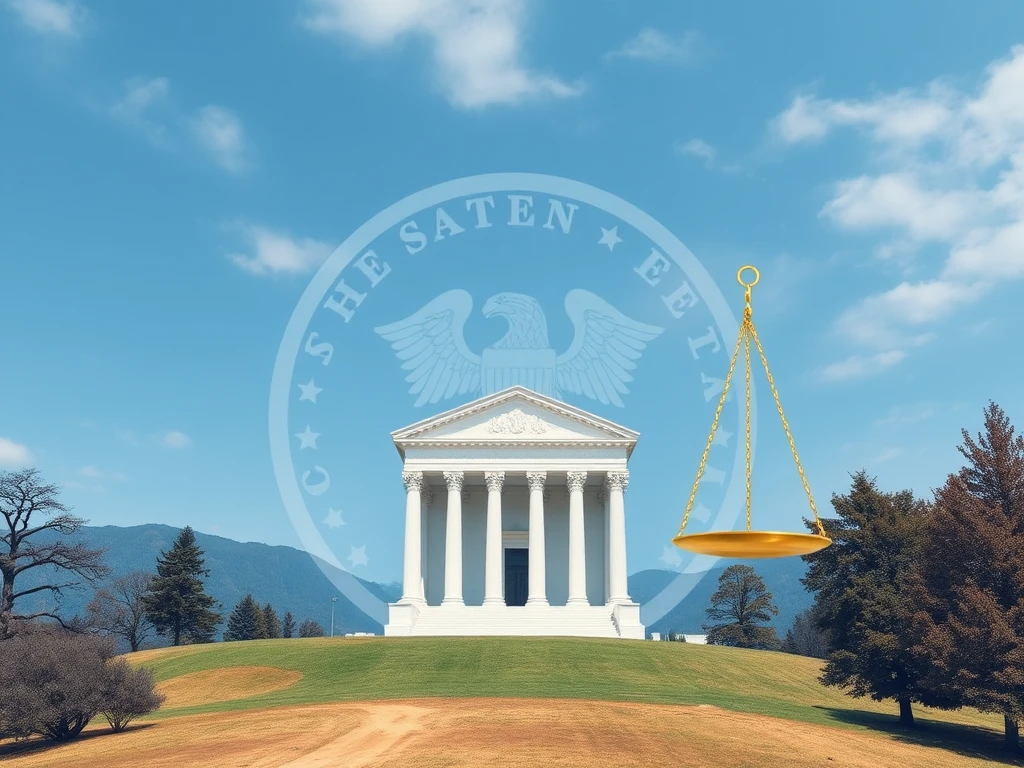Explosive Shift: SEC Chair Attacks Gensler’s Crypto Approach, Champions Self-Custody Amidst Regulation Debate

Big changes are happening at the U.S. Securities and Exchange Commission regarding its stance on SEC crypto regulation. The agency’s current chair, Paul Atkins, has openly criticized the previous administration’s methods, signaling a potentially significant shift in how digital assets are overseen.
New SEC Chair Attacks Gary Gensler’s Crypto Stance
During a recent SEC roundtable focused on “DeFi and the American Spirit,” SEC Chair Paul Atkins didn’t hold back. He specifically called out the prior administration’s approach to digital assets, suggesting that the agency under former chair Gary Gensler relied too heavily on enforcement actions through the courts rather than clear rulemaking.
Atkins implied this strategy was “heavy-handed” and potentially hindered innovation. He also questioned the longevity of policies like those concerning staking-as-a-service providers, stating they require congressional approval for lasting authority.
Championing Crypto Self Custody: A Foundational Value?
A key point of emphasis for Chair Atkins was the right to crypto self custody. He described it as a “foundational American value.” This is a notable stance, contrasting with concerns previously raised by regulators about self-custodial wallets.
Atkins expressed support for allowing market participants greater flexibility to self-custody crypto assets. He argued that intermediation (using third parties like exchanges) can sometimes add unnecessary costs or restrict activities like staking and other onchain functions. He specifically lamented that the prior administration’s regulatory actions had, in his view, undermined innovation in self-custodial digital wallets by suggesting their developers might be conducting brokerage activities.
Navigating DeFi Regulation and Onchain Activity
The roundtable itself was part of a series organized by the SEC’s crypto task force, led by Commissioner Hester Peirce. These discussions aim to explore complex topics within the digital asset space, including DeFi regulation. The series has covered areas like trading regulation, custody, tokenization, and the status of tokens as securities.
Commissioner Caroline Crenshaw acknowledged the complexity of the issues discussed, stating the roundtables have given them “a lot to grapple with.” While the series was intended as a “spring sprint towards crypto clarity,” Crenshaw noted that simple or quick clarification is difficult given the complexity and high stakes involved. It’s better, she suggested, to get it right than rush.
Shift in SEC Enforcement Actions: A New Era?
The change in tone from Chair Atkins aligns with a perceived shift in the SEC’s actions since President Donald Trump took office and Gary Gensler departed. The agency appears to be taking a different path, both in its regulatory rhetoric and in its legal battles.
Recent developments suggest a softening approach compared to the past. For example:
- In February, the SEC agreed to drop its SEC enforcement actions against Coinbase after less than two years of litigation.
- Roughly a month later, Ripple announced the SEC would drop its appeal following a court decision against the company, stemming from a 2020 enforcement action.
These dropped cases represent significant changes in the landscape of SEC enforcement actions against major crypto players. The leadership structure at key U.S. financial regulators like the SEC and CFTC is also seeing changes, with upcoming nominations and expiring terms.
Conclusion: What Does This Mean for Crypto?
The comments from SEC Chair Paul Atkins, particularly his criticism of the previous approach and strong defense of crypto self custody, indicate a potential new direction for SEC crypto regulation. Coupled with the recent dropping of high-profile SEC enforcement actions, the environment for digital assets in the U.S. could be entering a new phase. While the path to clear DeFi regulation and overall crypto clarity remains complex, the willingness of the current leadership to openly question past strategies and champion foundational principles like self-custody is a notable development for the industry.









